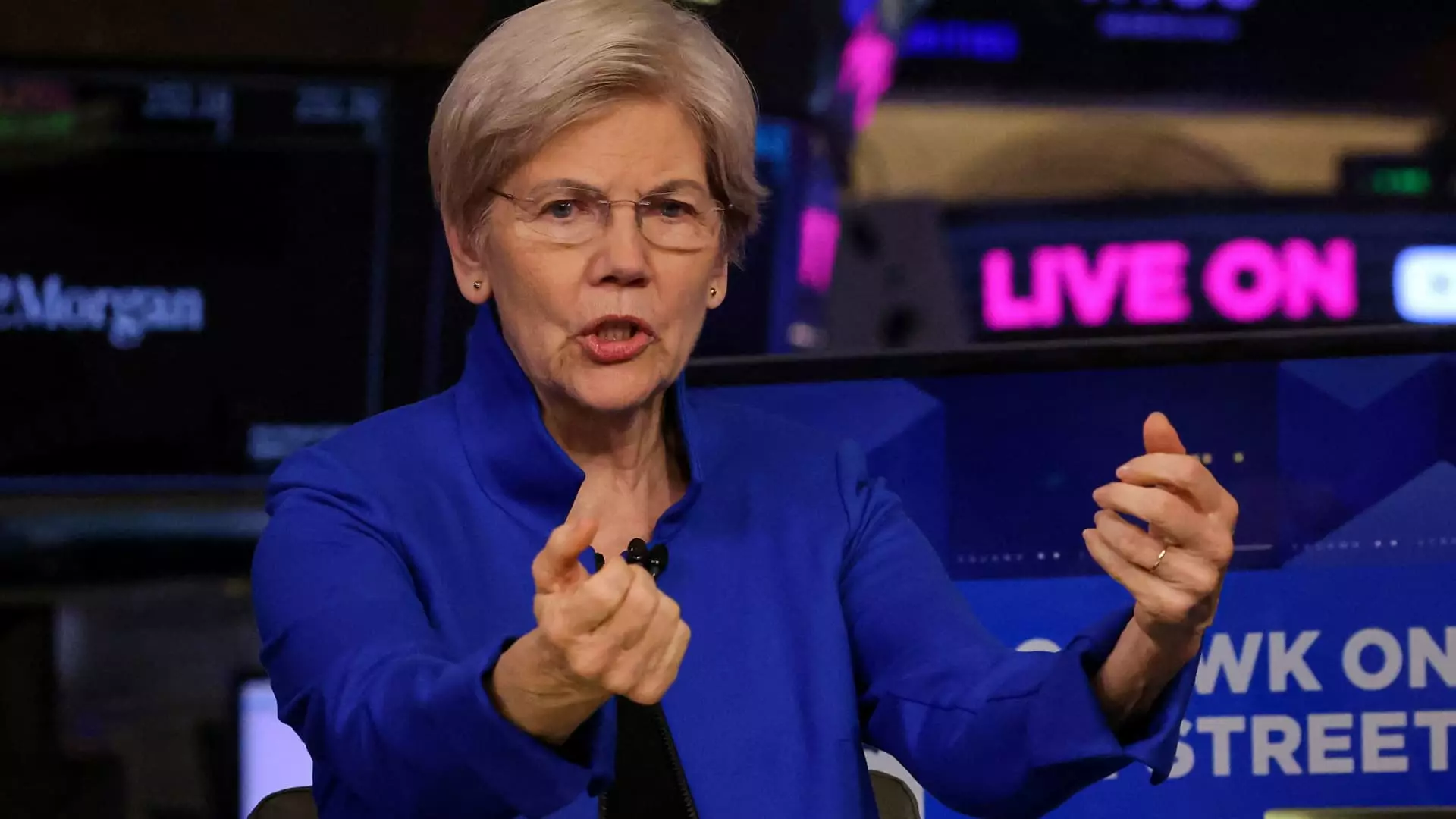The United States’ economic health relies fundamentally on the independence of its core institutions, especially the Federal Reserve. When political figures challenge this independence, they jeopardize not only short-term market stability but the very fabric of economic confidence that sustains our prosperity. Recent threats against Fed Chair Jerome Powell, ostensibly driven by presidential frustrations over monetary policy decisions, highlight a larger issue: the dangerous intersection of politics and economic oversight. Such interference undermines the very principles that keep markets resilient amid volatility and crisis. The scenario painted by critics, including Senator Elizabeth Warren, underscores a perilous reality—once the guardrails of independence are compromised, chaos ensues.
The core of the problem lies in the fundamental purpose of the Federal Reserve: to act as an autonomous guardian of monetary policy, shielding the economy from politicized swings. When political actors like President Donald Trump publicly attack the Fed’s leadership or insinuate the possibility of firing its chair, it sends a destabilizing message. Market participants thrive on predictability and stability, qualities rooted in the trust that policymakers operate free of immediate political pressures. If this trust erodes, investors are likely to react with fear, leading to volatile markets that can disproportionately impact everyday Americans—retirees, workers, and small businesses—who are most vulnerable to sudden financial shocks.
The fear articulated by Warren is rooted in a profound understanding of how institutional independence functions as a safeguard against arbitrary decision-making. While presidents appoint Fed chairs, they are meant to serve within a framework of independence designed to insulate monetary policy from the whims of politics. The Fed’s decision not to cut interest rates despite pressure from the White House reflects a commitment to data-driven policy rather than political expediency. Undermining this independence risks transforming the institution into a puppet controlled by short-term political gains, which could magnify economic downturns and erode public trust in government institutions.
The Political Consequences of Attacking the Fed
Political leaders who attack the Fed and its leaders are playing a dangerous game. They risk not only destabilizing the market but also damaging the country’s reputation as a stable and reliable nation for investment. Trump’s relentless pushback against Powell, fueled by dissatisfaction with interest rate decisions, exemplifies how political frustrations can spiral into destabilizing threats. The intermittent denials and vague threats of firing Powell reveal an unsettling tendency to politicize the most crucial aspects of economic governance, which should, above all, be protected from partisan battles.
This behavior is shortsighted and fundamentally misguided. A healthy economy depends on central institutions’s credibility, which is inherently compromised when their independence is questioned or challenged for political reasons. If market participants perceive that the Federal Reserve is subject to political interference, they will inevitably adjust their behavior, leading to increased volatility, higher borrowing costs, and a decline in economic growth. Moreover, such challenges embolden other political actors to intervene in areas requiring neutrality, creating a dangerous precedent where economic stability becomes a pawn in political disputes.
The broader implication of this moment is a reflection of the fragile balance between governance and independence. While politicians are elected to lead, economic stewards like the Fed must be able to operate free from political pressure to perform their duties effectively. Public trust is the currency of monetary policy; once lost, it is exceedingly difficult to regain. Leaders who threaten this trust risk cementing a legacy of chaos and mismanagement—outcomes that are ultimately detrimental to all Americans.
Why Vigilance and Advocacy Matter
Critical scrutiny and advocacy for institutional independence aren’t just about protecting the status quo—they are about safeguarding the future of American economic stability. In an era fraught with geopolitical tensions, trade wars, and unpredictable financial shocks, the resilience of the Federal Reserve’s independence is more relevant than ever. It acts as a bulwark against populist rhetoric that could push the economy into reckless policies driven by short-term political gains rather than long-term stability.
Politicians must recognize that economic health is a collective good, transcending partisan divides. The Fed’s role, upheld through independence, exists to serve the nation’s best interests—particularly during turbulent times. Undermining this role for personal or political vendettas erodes the foundations of fiscal credibility and invites chaos. It is imperative that policymakers, civic leaders, and citizens alike defend the institutional integrity of the Federal Reserve. Only through steadfast commitment to independence can we prevent a descent into economic disarray driven by fleeting political agendas.
Ultimately, the stability of the U.S. economy depends on unwavering trust in its institutions. Threatening to remove or undermine the Fed’s leadership for political convenience is not only irresponsible—it’s potentially catastrophic. As history has shown, markets do not respond kindly to uncertainty, and once trust is broken, repairing it is an arduous, often impossible, task. Protecting this core pillar of economic stability must remain a national priority—regardless of the political winds that blow.

Leave a Reply